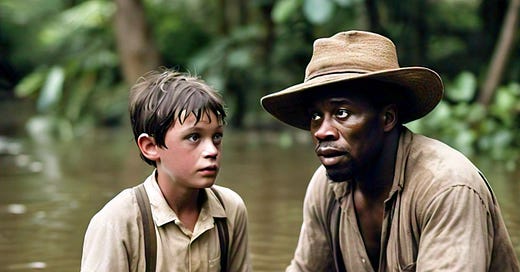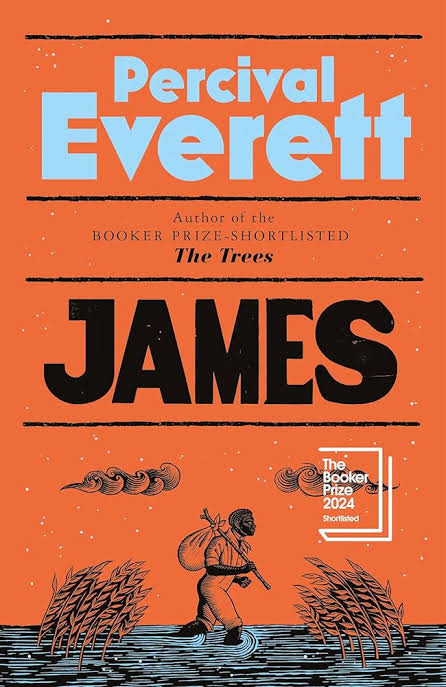Book Review: James by Percival Everett
When I came to know that 'James', the Booker and Pulitzer-nominated novel by Percival Everett, is based on the character Jim from the novels 'The Adventures of Tom Sawyer' and 'Adventures of Huckleberry Finn' by Mark Twain, I decided to re-read both of them before picking it to read. I've read the books for the last time during my high school years, and reading them again was an interesting experience. In this reading, I came to realize how they are markedly different in their style and their content from each other, even when they share a universe. As expected, 'James' brings a very distinct perspective, something that couldn't be expected from the original novel written during its time.
In 'Adventures of Huckleberry Finn', the entire novel is narrated from the perspective of Huck, a poor young white boy who stays outside the regular social life of his locality. This factor itself makes it narratively superior to 'The Adventures of Tom Sawyer', which is also an incredible tale, though more 'cuter' and intended for juvenile consumption. Jim, the runaway slave who accompanies Huck in his adventures, is an important character in the story, but Mark Twain keeps him at a distance from the readers. Still, for a careful enough reader, there are enough signs that point out how intricate a character he is.
In the novel 'James', we get to revisit the story from the point of view of Jim, and Everett develops the character from the framework formed by Twain and expands him to a complex protagonist, also exposing to the reader the ugly face of racial oppression and perverted morality of the time. While the two novels of Twain focus on the workings of the adolescent mind and the fantasies they create to make sense of the cruel and deviant world outside them, 'James' is more direct about its subject matter. Jim is not on a fantasy trip, and the backbone of both novels, the river journey that Huck endures in search of Sindbadian adventures, is for Jim an Odyssey, a race against time towards his freedom and self-realization.
Though Everett bases his novel on the universe created by Twain and also uses many characters from the former books, we see that he tightly binds them to reality while compared to their original iteration. His tale is more brutal and plausible, only if some extreme elements, like all the slaves developing a language to fool their masters, are discounted. For this reason, he deviates entirely from the second half of the novel and makes Jim travel through a different set of adventures.
At the beginning of the novel, we see Jim, who has secretly learned to read and write, describing the concept of irony to his fellow slaves. We find irony playing out a lot in the novel, right from a black man and a white boy fleeing together for two different reasons and how they form a bond in the end. We encounter irony many times again in the singing troupe that enlists Jim and also when two white con men leech onto them. Another important ironic element is the paternal nature that Jim shows towards Huck, which I feel the writer spoiled by a twist in the tale.
The tale of Huckleberry Finn can be seen as an allegory about a boy's journey to a man, a step-by-step practical guide in tackling a difficult world, and the final lesson that one should be wary of purely bookish knowledge. 'James' also has a few elements that show a mirror to our modern lives. It puts forward some significant statements on slavery in modern times, on how each person is still a slave of an oppressive system designed to keep us all enslaved and even knowledge cannot save us from its clutches. Though, as a novel, I consider 'Adventures of Huckleberry Finn' to be miles ahead, 'James' is still an important and worthy novel that explores the concepts of identity and freedom.





